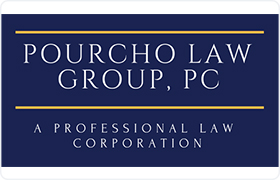Cypress Collection Lawyer, California
Sponsored Law Firm
-
 x
x

Click For More Info:
-
Pourcho Law Group, PC
2618 San Miguel Dr Suite 410 Newport Beach, CA 92660» view mapCollection Law Results Driven Legal Assistance
Ben Pourcho and the legal support team at the Pourcho Law Group, PC have a proven track record of providing the highest quality of legal representation to our clients.
800-936-1321
FREE CONSULTATION
CONTACTAlexander F Giovanniello
Employment Discrimination, Elder Law, Insurance, Collection
Status: In Good Standing Licensed: 38 Years
Alexander Fernando Giovanniello
Employment Discrimination, Elder Law, Insurance, Collection
Status: In Good Standing Licensed: 38 Years
Alexander F Giovanniello
Employment Discrimination, Elder Law, Insurance, Collection
Status: In Good Standing Licensed: 38 Years
Arash Shirdel
Bankruptcy & Debt, Employment, Lawsuit & Dispute, Business, Collection
Status: In Good Standing Licensed: 18 Years
FREE CONSULTATION
CONTACTCatherine Elizabeth Christiansen
Commercial Real Estate, Commercial Banks, Collection, Bankruptcy
Status: In Good Standing Licensed: 28 Years
David Reynold Fagen
Class Action, Immigration, Divorce, Felony, Collection
Status: In Good Standing Licensed: 33 Years
James R Jones Jr.
Divorce & Family Law, Lawsuit & Dispute, Juvenile Law, Adoption, Collection
Status: In Good Standing Licensed: 44 Years
FREE CONSULTATION
CONTACT Ben Pourcho Newport Beach, CA
Ben Pourcho Newport Beach, CA Practice AreasExpertise
Practice AreasExpertise
